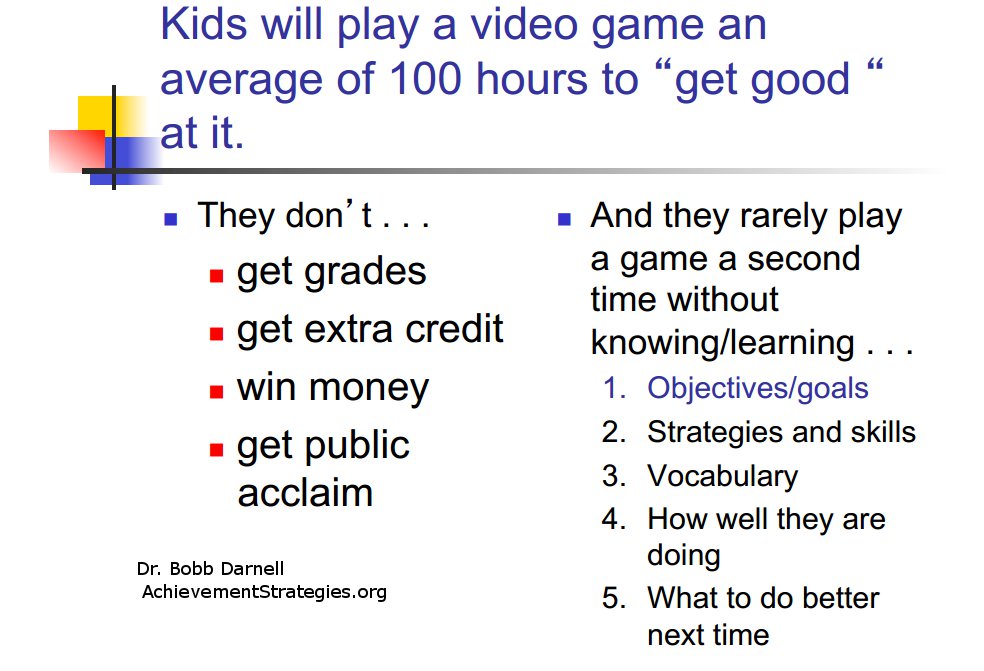Last year I had the opportunity to attend the Association for Middle Level Education’s Annual Conference in Louisville, KY. The first breakout session I attended was entitled “What Great Schools Do When Students Fail” and was presented by Dr. Bobb Darnell. Dr. Bobb was very entertaining and provided an avalanche of information. I still comb through the stack of notes and handouts I walked away with upon occasion. Most every school district could benefit from his presentations or other services and his website achievementstrategies.org is a great resource for teachers. I highly encourage you set aside some time to click through it and see if there’s anything you can use.
Despite the overwhelming quantity of great information however, it was this tidbit that I found exceptionally powerful.

Now, I don’t know where Dr. Darnell gleaned this information from, but given the obviousness of it I have little reason to doubt its validity. Anybody who has ever spent time playing video games, or even talking with someone who has, realizes the accuracy of these claims.
The ramifications of this are simple, yet impactful.
As teachers, we simply MUST make sure our students understand the objective. During his presentation, Dr. Darnell stressed the point, saying “Imagine if you played any game for an hour and when you walked out of the room, somebody asked you how you did and you had to reply ‘I don’t know.’” This is precisely how many of our students feel if we don’t make it clear what they should be trying to learn.
We MUST make it clear to students what strategies, skills and vocabulary they will need to know to be successful with any given unit of study. We should give it to students at the beginning of their studies as well, and give them a mechanism to track their own understanding of these concepts as they go along.
We MUST give students an opportunity to reflect upon their work and know what to improve upon next time. Failure to do so is to rob them of the opportunity to learn from their own experience. For more on this, check out Reflecting for Learning section.
When looking at this hidden connection between Video Games and Learning it’s inspiring to think of what life might be like if students attacked our class with the same vigor they play their favorite game. While that level of excitement may be unattainable, even a fraction of that would be preferable to the motivational struggles we face now. We attribute these motivation problems to a variety of sources, but in reality they may be a bi-product of not knowing the objective, key vocabulary or strategies needed to be successful or never getting the opportunity to show they’ve learned from their mistakes.
We don’t need coercive, extrinsic motivators to inspire our students. We simply need to show them what they need to accomplish and give them the tools and opportunities to do so.

